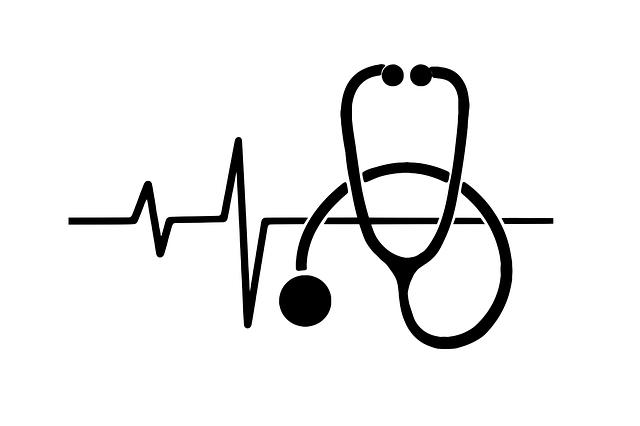Do you wake up with headaches or jaw pain? You might be grinding your teeth in your sleep. Learn how to protect your smile from teeth bruxism.
1. Understanding Teeth Bruxism: A Common Dental Concern
Teeth grinding, also known as bruxism, is a common dental condition that can cause significant damage to the teeth, jaw, and surrounding muscles. It often occurs during sleep, making it difficult for individuals to be aware of the problem. Understanding the causes and symptoms of bruxism is crucial in addressing and managing this dental concern. Some common causes of teeth grinding include stress, anxiety, misaligned teeth, and sleep disorders.
Symptoms of bruxism may include:
– Teeth grinding or clenching, often loud enough to wake others
– Jaw pain or soreness
– Headaches, especially in the morning
– Tooth sensitivity or pain
– Damage to teeth, such as flattening, chipping, or cracking
If left untreated, bruxism can lead to more serious dental issues, such as tooth loss, TMJ disorders, and chronic pain. Seeking professional help from a dentist is essential in diagnosing and treating bruxism effectively. Treatment options may include wearing a night guard, stress management techniques, and addressing any underlying dental issues. Regular dental check-ups can help monitor the condition and prevent further damage to the teeth and jaw.
2. Signs and Symptoms of Teeth Grinding: What to Look Out For
Teeth grinding, or bruxism, can manifest in various signs and symptoms that individuals should be aware of. Some common indicators to look out for include:
- Jaw pain or soreness upon waking up
- Increased tooth sensitivity
- Headaches, especially in the morning
- Visible wear on teeth, such as flat or chipped surfaces
- Earaches or pain that radiates to the ear
These symptoms may vary in severity and frequency from person to person, but it’s important to address them promptly to prevent further damage to the teeth and jaw. If you suspect that you or someone you know may be grinding their teeth, consider consulting a dentist for a proper evaluation and treatment plan.
3. The Impact of Teeth Bruxism on Oral Health: Risks and Complications
Teeth bruxism, or the grinding and clenching of teeth, can have significant impacts on oral health. The risks and complications associated with this condition include:
- Increased tooth wear and damage
- TMJ disorders and jaw pain
- Headaches and migraines
- Muscle tension in the face and neck
- Disrupted sleep patterns
It is important to address teeth bruxism to prevent these complications. Patients can explore treatment options such as wearing a night guard, stress management techniques, and dental interventions to protect their oral health.
4. Causes of Teeth Grinding: Uncovering the Root of the Issue
Teeth grinding, or bruxism, can stem from a variety of factors. Identifying the root cause is essential in effectively treating and managing the condition. Some common causes of teeth grinding include:
- Stress and anxiety: Emotional stress and anxiety can lead to teeth grinding, especially during sleep.
- Misaligned teeth: A misalignment of the teeth can cause the jaw to clench and grind involuntarily.
- Sleep disorders: Conditions like sleep apnea can contribute to teeth grinding as the body tries to compensate for breathing difficulties.
It is important to consult with a dental professional to determine the underlying cause of your teeth grinding. By addressing the root issue, you can work towards finding relief and preventing further damage to your teeth and jaw.
5. How to Diagnose Teeth Bruxism: Seeking Professional Evaluation
To get a proper diagnosis of teeth grinding, it is crucial to seek professional evaluation from a dentist or a doctor. They will be able to assess your symptoms and determine if you are indeed suffering from bruxism.
During your evaluation, the healthcare provider may:
- Conduct a physical exam to check for signs of teeth grinding
- Perform a thorough dental exam to look for damage caused by grinding
- Recommend a sleep study to monitor your jaw movements and muscle activity during the night
It’s important to seek professional help if you suspect you have bruxism, as untreated teeth grinding can lead to serious dental issues and discomfort. With the guidance of a healthcare provider, you can develop a treatment plan to manage your symptoms and protect your teeth.
6. Protecting Your Smile: Strategies for Managing Teeth Grinding
Teeth grinding, also known as bruxism, can cause serious damage to your teeth and overall oral health if left unchecked. Here are some strategies to help manage and prevent teeth grinding:
- **Wear a mouthguard:** A custom-fitted mouthguard can help protect your teeth from the effects of grinding while you sleep.
- **Practice stress-reducing techniques:** Stress can be a major contributor to teeth grinding, so finding ways to relax and unwind can help alleviate the problem.
- **Avoid caffeine and alcohol:** Both of these substances can contribute to teeth grinding, so cutting back or eliminating them from your diet may help reduce grinding.
- **See a dentist:** Your dentist can help identify the root cause of your teeth grinding and recommend treatment options such as dental work or therapy.
By implementing these strategies, you can help protect your smile and prevent further damage from teeth grinding. Be proactive in managing your oral health to ensure a healthy and happy smile for years to come.
7. Treatment Options for Teeth Bruxism: From Mouthguards to Therapy
There are various treatment options available for teeth bruxism, ranging from simple solutions to more complex therapies. One common approach is the use of **mouthguards**, also known as night guards or occlusal splints. These devices help protect the teeth from grinding during sleep and can alleviate the symptoms of bruxism.
In addition to mouthguards, **biofeedback** therapy can also be helpful in managing teeth grinding. This type of therapy involves learning how to control muscle activity through feedback mechanisms, such as electronic devices or professional guidance. By becoming more aware of the habit and its triggers, individuals can work towards reducing their bruxism episodes.
Other treatment options for teeth bruxism include **stress management** techniques, such as relaxation exercises, meditation, or counseling. Addressing underlying stress or anxiety can help decrease the frequency and intensity of teeth grinding episodes. It’s important to consult with a healthcare professional to determine the most suitable treatment plan for your unique situation.
8. Preventing Further Damage: Tips for Reducing Teeth Grinding
Teeth grinding, also known as bruxism, can cause serious damage to your teeth and overall oral health. Here are some tips to help prevent further damage:
- **Wear a mouthguard:** A custom-fitted mouthguard can protect your teeth from the pressure and friction of grinding.
- **Manage stress:** Stress and anxiety are often triggers for teeth grinding. Try relaxation techniques such as deep breathing, meditation, or yoga to help reduce stress levels.
- **Avoid caffeine and alcohol:** These substances can exacerbate teeth grinding. Limiting your intake may help reduce grinding.
- **See a dentist regularly:** Regular dental check-ups can help identify any damage caused by grinding early on, allowing for prompt treatment.
By incorporating these tips into your routine, you can help prevent further damage from teeth grinding and protect your oral health in the long run.
9. Long-Term Effects of Untreated Teeth Bruxism: Why Early Intervention is Key
Teeth bruxism, if left untreated, can have long-term effects on your oral health and overall well-being. Early intervention is crucial in preventing these potential issues down the road. Here are some of the reasons why it’s important to address teeth grinding as soon as possible:
- To prevent tooth wear: Chronic teeth grinding can wear down the enamel on your teeth, leading to sensitivity and an increased risk of cavities.
- To reduce jaw pain: Bruxism can put excessive strain on the jaw muscles, resulting in pain, headaches, and even temporomandibular joint (TMJ) disorders.
- To improve sleep quality: Teeth grinding can disrupt your sleep, leading to fatigue, irritability, and other health problems.
10. Maintaining Healthy Teeth: Promoting Good Oral Hygiene Practices to Combat Bruxism
Regular dental check-ups are essential for maintaining healthy teeth and combating bruxism. Dentists can identify early signs of bruxism and provide personalized treatment options. It is important to follow their recommendations and attend scheduled appointments to monitor progress.
Practicing good oral hygiene habits can also help prevent bruxism. Brushing your teeth twice a day with a fluoride toothpaste, flossing daily, and using mouthwash can reduce the risk of tooth damage caused by grinding and clenching. Additionally, avoiding hard foods and chewing gum excessively can alleviate pressure on the jaw muscles.
Incorporating stress-reducing techniques into your daily routine can also combat bruxism. Activities such as yoga, meditation, and deep breathing exercises can relax the mind and body, reducing tension in the jaw muscles. It is crucial to prioritize self-care and implement healthy habits to maintain optimal oral health and combat bruxism effectively. In conclusion, bruxism can lead to serious dental problems if left unchecked. Protect your smile by recognizing the signs and seeking treatment early. Remember, your oral health is important!






